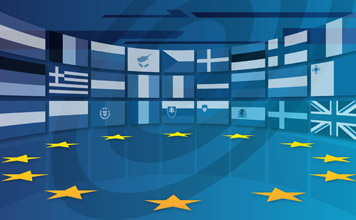Finland tops the new European Media Literacy Index 2023, with a score of 74 points out of 100, showcasing Finland’s remarkable achievement as the frontrunner in the sixth consecutive edition of the index since 2017. The index, which includes 41 states, measures the potential vulnerability to disinformation across Europe, with higher rankings and scores indicating better resilience of societies to the impact of disinformation and related phenomena.
Denmark secures the 2nd position with 73 points, followed closely by Norway in 3rd place with 72 points. Estonia and Sweden share the 4th and 5th places, respectively, both earning commendable scores of 71 points each.
On the other end of the spectrum, Georgia in the South Caucasus finds itself at the bottom of the ranking with a score of 20 points, securing 41st place. Preceding Georgia, Kosovo occupies the 40th position with 21 points, North Macedonia ranks 39th with 23 points, and Bosnia and Herzegovina takes the 38th spot with 24 points. According to the index, these countries are the most vulnerable to the effects of disinformation.
The index is an instrument for ranking societies in their potential for resilience in the face of the post-truth, disinformation, and misinformation (e.g. “fake news”) phenomena. The model employs several indicators – the quality of education, media freedom, trust in society, and the usage of new tools of participation. The index converts the data into standardized scores from 0 to 100 (lowest to highest) and ranks the countries from 1 to 41 (highest to lowest position). The Media Literacy Index has been created and published since 2017 by the Open Society Institute – Sofia.
The Media Literacy Index also employs cluster analysis to group countries with similar characteristics based on their scores, ranging from the best-performing countries in the 1st cluster to the poorly performing ones in the 5th cluster.
When visualized on a map, a clear pattern emerges. The best-performing countries in the 1st cluster are primarily located in Northern and Western Europe, including several Scandinavian countries, Estonia, and Ireland. The 2nd cluster encompasses a significant portion of Western and Central Europe. The 3rd cluster consists of Southern and Central European countries, Ukraine and Greece. The 4th and 5th clusters form “an expanded” Balkan region, with the 4th cluster representing countries from Romania, Serbia, and Bulgaria to Turkey and Moldova. The 5th cluster includes the remaining Balkan countries, such as Albania, Bosnia and Herzegovina, North Macedonia, Kosovo, and Georgia in the South Caucasus.
An interesting observation lies in Ukraine and Greece, which managed to ascend from the fourth cluster in 2022 to the third cluster in 2023, while the Netherlands transitioned from the first to the second cluster.
This geographical distribution of clusters reflects an East-West and North-South divide, with the Balkan countries and the Caucasus region trailing behind in terms of media literacy.
Several noteworthy differences emerge when comparing the 2023 index results with the previous year’s edition. Romania, Poland, and Lithuania experienced the most significant drop in the ranking, falling three positions each, accompanied by a decrease in their respective scores by 4, 3, and 4 points. Conversely, Belgium, the Czech Republic, and Latvia witnessed the most substantial improvements, climbing three positions up the ranking.
The report also includes an expanded version of the index with six additional countries to a total of 47 countries to allow for international comparisons. Canada is in 7th place out of 47 countries with 68 points and Australia in 10th place with 63 points are the best performers in the additional group. South Korea in 17th place and the USA in 18th place have identical scores of 60 points and Japan is in 22nd place with 77 points. Canada joined the 1st cluster of best performers, mostly North European countries. Australia, South Korea, the USA, and Japan joined the 2nd cluster, which consists mostly of West European and Central European countries. Israel is in 32nd place with 42 points and in the 3rd cluster with South and Central European countries.
Marin Lessenski, the author of the report, commented that “It is troubling that some of the most vulnerable countries as registered by low results in the Media Literacy Index 2023 are also the closest to the war in Ukraine started by Russia and among the most exposed to malign disinformation”. In addition, the Balkan countries, many of which are still experiencing internal instability and inter-state tensions in 2023, remain among the highest at-risk countries in the index.
Full text of the report entitled Bye, Bye Birdie: The Challenges of Disinformation – The Media Literacy Index 2023 .
Contact:
Marin Lessenski
Mob. +359-887510641
E-mail: mlessenski@osi.bg















